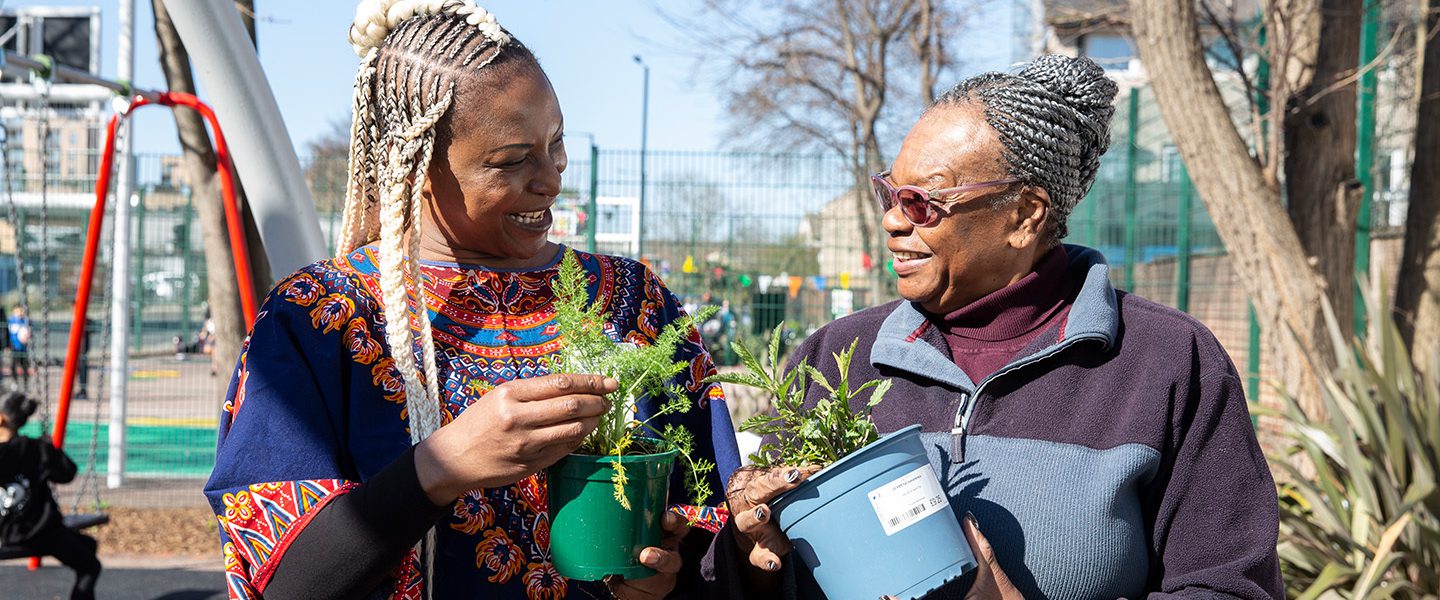Not the same old story
By Alex Robinson, 31st January 2024
Measuring impact is one of the toughest parts of running a charity. It's also vitally important. Hubbub is known for innovation and experimentation, and our work on impact is no different. 'Story-collecting' is a new approach for us, offering rich insights that more traditional methods might miss.
Work through challenges
When it comes to impact, the challenges are everywhere. There are practical difficulties of capturing data, risks around attributing cause and effect, debates around theories of change... the list goes on. Those challenges are especially nuanced for community-led work that takes place over a significant period of time, like our Breaking Ground projects.
Over the course of a year we supported environmental and social change in four London neighbourhoods, designed and led by the people who live there. We can show you the spaces that were transformed, or highlight the 50 community events we ran with over 2,500 attendees. But that won't tell you about the impact on the communities.
Enter story-collecting
Story-collecting involves recording deep-dive conversations with people involved in the projects, which we can then transcribe and analyse in order to group the impacts into themes. The method allows for unexpected outcomes, and it places impact within the context of people's lives. It fits with our five principles of working with communities - read on for those.
The most commonly talked about themes gave us an understanding of the most significant impacts, and altogether built a picture of the change created by the projects in a way that no statistics ever could.
More than a third of the interviews was spent talking about community cohesion: descriptions of more people getting involved and coming together, increased trust and social connections, better cultural awareness, and increased sense of pride in the local area and the people that live there
A feeling of autonomy and empowerment, and conversations about wellbeing, were not far behind – as well as a sense of stewardship over the local environment. I love this quote from one of the participants, who weaves it all together:
"People used to say they were ashamed to come from this area, now they can say that it's a clean and green area. It's got vibrant energy. It's got a lot of beautiful wildlife and beautiful green spaces that are taken care of. And there's a space where people come together to eat that’s filled with music and enjoyment."
Want to know more? We're running a webinar with participants from the Breaking Ground projects to help others run (and measure) community-led climate action projects. Check it out and sign up at the link below.
Five principles of working with communities
-
Collaborate authentically
We build in leadership and decision-making by those experiencing the issues we are working to help resolve.
-
Listen and learn
We believe hearing directly from people in a community gives us the best insights for our projects.
-
Have some fun with it!
We try to make people smile. We know that if it’s fun to take part, we’re more likely to get people involved.
-
Stay open
We’re not afraid to share our motivations and even our mistakes, because it builds trust and helps hold us to account.
-
Unlock ambition
Climate justice starts with communities. So we help remove barriers and cultivate ambitious action that creates real change and benefits everyone.
Flower to the people!
Over 12 months of supporting communities to create community green spaces, we’ve learned a lot about community-led climate action. Want to see how change can truly be led by communities? Join us on 21st February and hear how four London neighbourhoods came together to create positive change for their environment and well-being. A panel discussion with participants will reveal key learnings, what worked, and what's possible when communities come together.
Are you a business that wants to collaborate?
If you have a challenge to share, or want to get involved with our work, we'd love to hear from you.
Want to stay in the loop?
Sign up to our newsletters to be the first to know about new campaigns, launches, tips, research and environmental news. You’re in for a treat.
